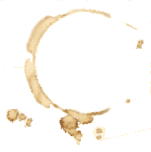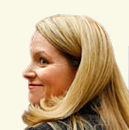Posted on Tuesday 29 May 2007
… In Friday’s eminently readable court filing, Fitzgerald quotes the Libby defense calling his prosecution "unwarranted, unjust, and motivated by politics." In responding to that charge, the special counsel evidently felt obliged to put Libby’s crime in context. And that context is Dick Cheney.
Libby’s lies, Fitzgerald wrote, "made impossible an accurate evaluation of the role that Mr. Libby and those with whom he worked played in the disclosure of information regarding Ms. Wilson’s CIA employment and about the motivations for their actions."
It was established at trial that it was Cheney himself who first told Libby about Plame’s identity as a CIA agent, in the course of complaining about criticisms of the administration’s run-up to war leveled by her husband, former ambassador Joseph Wilson. And, as Fitzgerald notes: "The evidence at trial further established that when the investigation began, Mr. Libby kept the Vice President apprised of his shifting accounts of how he claimed to have learned about Ms. Wilson’s CIA employment."
The investigation, Fitzgerald writes, "was necessary to determine whether there was concerted action by any combination of the officials known to have disclosed the information about Ms. Plame to the media as anonymous sources, and also whether any of those who were involved acted at the direction of others. This was particularly important in light of Mr. Libby’s statement to the FBI that he may have discussed Ms. Wilson’s employment with reporters at the specific direction of the Vice President." (My italics.)
Not clear on the concept yet? Fitzgerald adds: "To accept the argument that Mr. Libby’s prosecution is the inappropriate product of an investigation that should have been closed at an early stage, one must accept the proposition that the investigation should have been closed after at least three high-ranking government officials were identified as having disclosed to reporters classified information about covert agent Valerie Wilson, where the account of one of them was directly contradicted by other witnesses, where there was reason to believe that some of the relevant activity may have been coordinated, and where there was an indication from Mr. Libby himself that his disclosures to the press may have been personally sanctioned by the Vice President." (My italics.)
Up until now, Fitzgerald’s most singeing attack on Cheney came during closing arguments at the Libby trial in February. Libby’s lawyers had complained that Fitzgerald was trying to put a "cloud" over Cheney without evidence to back it up — and that set Fitzgerald off. As I wrote in my Feb. 21 column, the special counsel responded with fire: "There is a cloud over what the Vice President did that week. . . . He had those meetings. He sent Libby off to [meet then-New York Times reporter] Judith Miller at the St. Regis Hotel. At that meeting, the two-hour meeting, the defendant talked about the wife. We didn’t put that cloud there. That cloud remains because the defendant has obstructed justice and lied about what happened…
"That’s not something that we put there. That cloud is something that we just can’t pretend isn’t there."
I, for one, haven’t given up. I think that there are persons in Washington D.C. who know enough to make it possible to prosecute Dick Cheney. What I hope is that as the Administration’s power erodes, those persons will come forward and talk about what happened. There was too much coordination in the Plame outing for it to have only involved Chjeney and Libby. The chart displayed at the Senate investigation showed 20 leaks in the chain. Sooner or later, one of the people will have a reason to come forward. So, I’m an optimist. Even Robert McNaMara and Deep Throat finally came clean.


 Goodling admitted checking the political donations of some job applicants before hiring them for jobs that are supposed to be apolitical. While crass, her actions did not threaten to bring down the republic. Still, they are part of a broader and more troubling picture—a slow and stealthy erosion of the independence of the Justice Department. President Bush’s personal involvement remains uncertain, as does the precise role of his chief political adviser, Karl Rove. Nonetheless, the clearest evidence of legal subversion comes not from congressional Democrats, but from once loyal Bush conservatives who worked at the Justice Department.
Goodling admitted checking the political donations of some job applicants before hiring them for jobs that are supposed to be apolitical. While crass, her actions did not threaten to bring down the republic. Still, they are part of a broader and more troubling picture—a slow and stealthy erosion of the independence of the Justice Department. President Bush’s personal involvement remains uncertain, as does the precise role of his chief political adviser, Karl Rove. Nonetheless, the clearest evidence of legal subversion comes not from congressional Democrats, but from once loyal Bush conservatives who worked at the Justice Department. On the night after Ashcroft’s operation, as Ashcroft lay groggy in his bed, his wife, Janet, took a phone call. It was Andy Card, asking if he could come over with Gonzales to speak to the attorney general. Mrs. Ashcroft said no, her husband was too sick for visitors. The phone rang again, and this time Mrs. Ashcroft acquiesced to a visit from the White House officials. Who was the second caller, one with enough power to persuade Mrs. Ashcroft to relent? The former Ashcroft aide who described this scene would not say, but senior DOJ officials had little doubt who it was—the president. (The White House would not comment on the president’s role.) Ashcroft’s chief of staff, David Ayres, then called Comey, Ashcroft’s deputy, to warn him that the White House duo was on the way. With an FBI escort, Comey raced to the hospital to try to stop them, but Ashcroft himself was strong enough to turn down his White House visitors’ request.
On the night after Ashcroft’s operation, as Ashcroft lay groggy in his bed, his wife, Janet, took a phone call. It was Andy Card, asking if he could come over with Gonzales to speak to the attorney general. Mrs. Ashcroft said no, her husband was too sick for visitors. The phone rang again, and this time Mrs. Ashcroft acquiesced to a visit from the White House officials. Who was the second caller, one with enough power to persuade Mrs. Ashcroft to relent? The former Ashcroft aide who described this scene would not say, but senior DOJ officials had little doubt who it was—the president. (The White House would not comment on the president’s role.) Ashcroft’s chief of staff, David Ayres, then called Comey, Ashcroft’s deputy, to warn him that the White House duo was on the way. With an FBI escort, Comey raced to the hospital to try to stop them, but Ashcroft himself was strong enough to turn down his White House visitors’ request.
 Cindy Sheehan, whose soldier son was killed in Iraq three years ago, said yesterday she was stepping down from her role as the figurehead of the US campaign against the war.
Cindy Sheehan, whose soldier son was killed in Iraq three years ago, said yesterday she was stepping down from her role as the figurehead of the US campaign against the war.